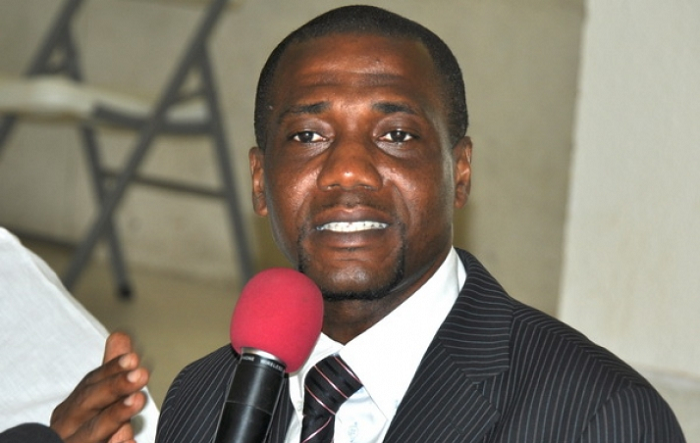
JOY to enhance technical, vocational education
I will enhance and give technical and vocational education priority, if given the nod as president, to boost and accelerate national development,” Mr Jacob Osei Yeboah has assured Ghanaians.
The independent candidate in the 2016 presidential race referred to technical and vocational training as a major solution to the increasing unemployment rate in the country, aside from creating industries from the vast natural resources the country is endowed with.
Speaking to students of the Comboni Technical and Vocational Institute at Sogakope in the Volta Region last Tuesday, Mr Yeboah said enhancing and making technical education progressive would make it attractive to stimulate entrepreneurship, which had the greatest potential of addressing the unemployment situation in the country.
Popularly known as JOY, Mr Yeboah said, the students’ response to his hello, which was “you can make us better than You met us,” has motivated him so much that, although he was optimistic of becoming the next president, even if he did not win, he would fight to see the next government raise the school into a state-of-the art facility.
He expressed worry over the deplorable state of the school, similar to other technical and vocational institutions.
“As an electronic engineer and an enterpriser, I understand better the opportunities and challenges of the sector more than any other presidential candidate and, therefore, I appeal to electorate to vote for me so that technical and vocational education, together with my industrialisation policy, can leverage the needed development for the country,” he said
Break the barriers to higher education
Mr Yeboah said considering the benefits of technical and vocational education, he would situate it properly within the education system to make it progressive, running from the junior high school (JHS) level to the highest educational level in the country to make it more attractive.
He said students “who choose technical and vocational education will be given the chance to progress gradually to any educational status they desire to demystify the notion that such education is inferior to the other traditional forms of education.”
According to him, all attention was being focused on the traditional forms of education which basically was theoretical, making the huge human resources churned out annually by the tertiary institutions unfit for the job market.
Using himself as an example, he recounted how after acquiring a Bachelor’s degree in electronic engineering, he knew everything about a motor but never set eyes on one during the period of his university education.
He said till date, such gaps between theory and practical skills still persisted and, therefore, the country was unable to provide the needed workforce readily for the job market to leverage the needed development in the country.
